Who we are…
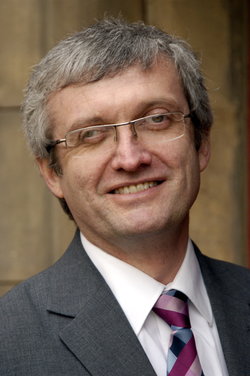
Tony Chapman
Director of Research and Professorial Fellow, St Chad’s College and Honorary Professor of Social Policy, Department of Sociology, Durham University
E-mail: tony.chapman@durham.ac.uk
07949 022 627
Blog: https://tonychapmanblog.wordpress.com Twitter: @TonyChapmanUK
Tony has a range of research interests including: young people’s life transitions and social mobility, gender and domestic life; home, neighbourhood and urban regeneration; social enterprise; and, third sector development. For several years he has undertaken applied research for private, public and third sector organisations, including: Joseph Rowntree Foundation, The National Lottery Community Fund, Charity Bank, ESRC, Cumbria Community Foundation, Community Foundation Tyne and Wear & Northumberland; O2; Telefõnica Foundation; Barrow Cadbury Trust; Garfield Weston Foundation; Millfield House Foundation; Power to Change; Cabinet Office; Northern Rock Foundation; Department for Education; Childrens’ Workforce Development Council, European Social Fund; Sport England; Commonwealth Secretariat; JPMorgan Philanthropy; NHS England and Drinkaware Trust. He has also undertaken a wide range of projects for local authorities and government agencies across the North England.
Tony’s work has an international dimension. Comparative research on social enterprise in North East England and Yamagata, Japan has been running for 9 years with colleagues at Tohuko and Sanno Universities. New links have now been developed with Tokyo, Waseda and Keio Universities. Research for O2/Telefonica, invovled comparative research on young people’s life transitions and social mobility in six European countries, including the UK, Eire, Germany, Spain, Slovakia and the Czech Republic.
Tony studied sociology and organisational behaviour as an undergraduate at Lancaster University from 1978-1981. He was awarded an ESRC studentship at Plymouth Polytechnic in 1981 where he undertook doctoral research on gender and social mobility. His first lectureship at Staffordshire Polytechnic involved teaching research methodology and organisational studies and researching graduate careers. He also taught at Teesside University whilst researching issues surrounding family, home and neighbourhood. He was also founding Director of the Social Futures Institute. He is an Honorary Professor and has taught social policy to undergraduates and masters students in the Department of Sociology, Durham University. He currently supervises a number of PhD students in Durham Business School.

Fred Robinson
Professorial Fellow, St Chad’s College, Durham University
E-mail: j.f.robinson@durham.ac.uk
0191 334 3361
Fred is an expert on social and economic development in North East England and, in particular, the role and impacts of public policy and the Third Sector. He has evaluated a wide range of regeneration initiatives and done research on structures and processes of regional and local governance. His work has included a longitudinal investigation of the development of the Third Sector in the North East and Cumbria ( with Professor Tony Chapman, for the Northern Rock Foundation); research on the possible implications for North East England of further Scottish autonomy (commissioned by the Association of North East Councils, in partnership with the Institute for Local Governance); and analysis of the financial challenges facing local authorities in the North East (also for ANEC and ILG).
Fred is involved in community development as a researcher, practitioner and participant. He has carried out an extensive study for the Joseph Rowntree Foundation looking at how universities can support disadvantaged communities. He also helped to design and develop Durham University’s community outreach programme and staff volunteering scheme. For more than 20 years he has served as a volunteer and chair of the Waddington Street Centre, a mental health charity in Durham. He was formerly chair of the North East Policy and Representation Partnership, an initiative which encouraged and supported Third Sector organisations to influence public policy.
Recently he has been working closely with Durham County Council. Fred and Ian Zass-Ogilvie are continuing to work with the Council to help local social enterprises take control of community buildings and deliver public services. In 2016 Fred also assisted the Council with a public consultation on the Government’s proposals for regional devolution.
In September 2016 he started a new programme of work exploring democracy, accountability and representativeness in the North East’s public institutions. Who runs the North East? is supported by the Joseph Rowntree Foundation, the Institute for Local Governance and Muckle LLP and is a joint initiative with Professor Keith Shaw at Northumbria University. The project has a strong practical focus: developing better governance in our region.
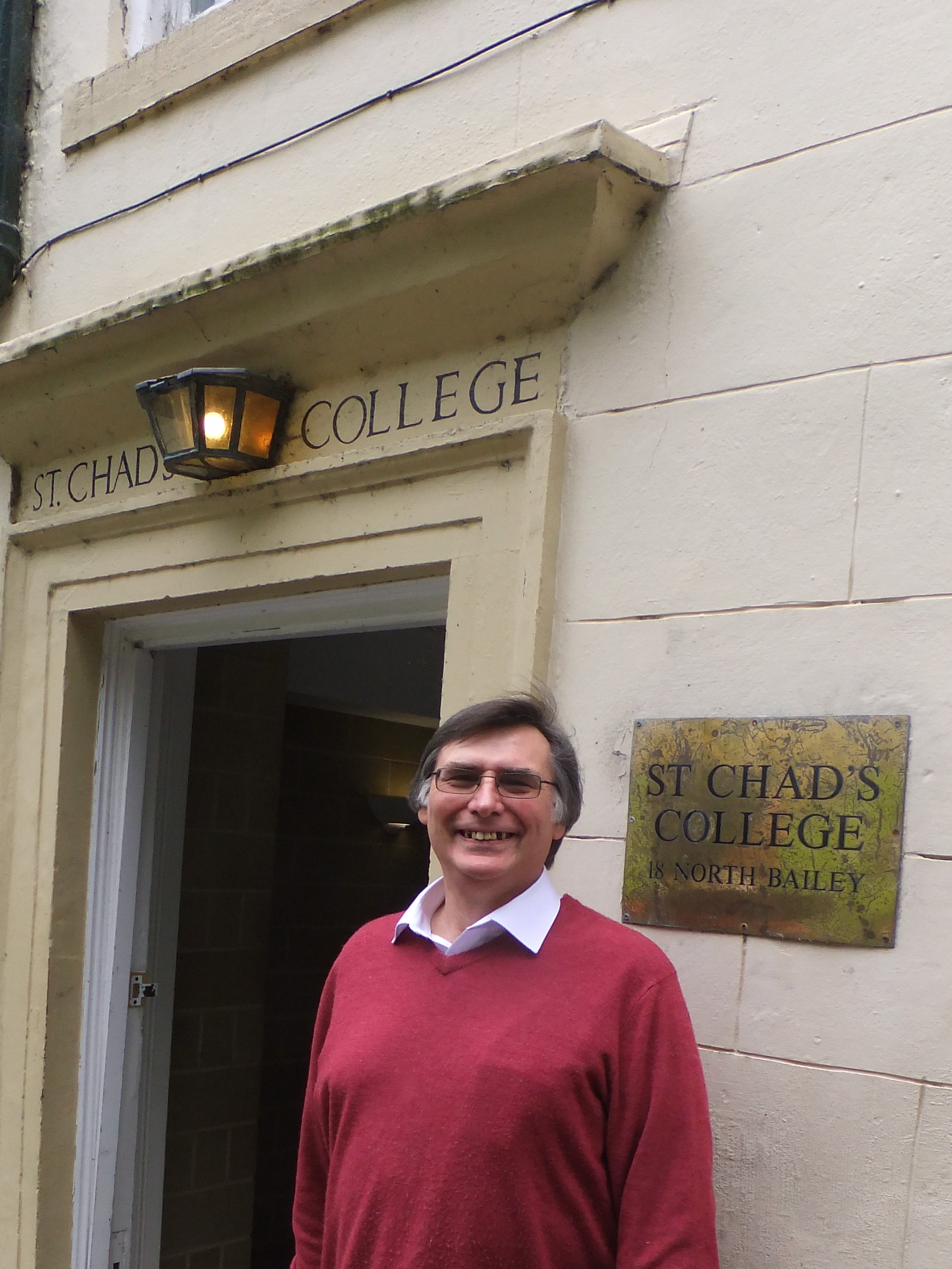
John Mawson FAcSS FeRSA MRTPI
Professorial Fellow, St Chad's College, Durham University
E-mail: jmawson@btinternet.com
John Mawson has a multi-disciplinary professional and academic background having worked in the Regional Report Team of Strathclyde Regional Council and subsequently as Director of Economic Development at West Midlands County Council. He went on to serve as Chief Executive of the pioneering West Midlands Enterprise Board Ltd., a local authority controlled venture capital institution which was to successfully operate across the region between 1981 and 2012, and influenced the development of the Labour Government’s Regional Development Agencies Programme.
In the academic world John was Director of the public sector MBA programme at the School of Public Policy, Birmingham University and went on to hold Chairs in Town and Regional Planning at Dundee University, and Public Policy and Management at Aston Business School. Between 2001 – 2009 he was Director of the Local Government Centre at Warwick Business School, which carried out a wide range of national policy evaluations funded by central government including Local Strategic Partnerships, Local Area Agreements, New Deal for Communities, Neighbourhood Management, and Sub-regional Transport Plans. The Centre also ran the longstanding Warwick Local Authority Research Consortium and a Social Exclusion Network involving leading councils (including Birmingham, Manchester, Cardiff and Bristol) in research focusing on innovations in policy and service delivery. In carrying out this research agenda the Centre pioneered co-production methods of engaging elected members, officers and academics in the work.
John currently holds a Chair in Durham University Business School and is Director of the Institute for Local Governance. This is a regional research and knowledge exchange partnership involving the key public sector institutions in the North East and its Universities, designed to promote research and knowledge exchange. Since its establishment in 2009 it has brokered and delivered some 90 research projects worth £2million, raised a further £500,000 for its Partners and organised over 180 knowledge exchange events involving 4300 attendees from academia, public, private and voluntary sectors.
In the world of practice, John has held Board positions in several private-public sector partnerships and community initiatives including serving as a Director of the West Midlands Technology Transfer Centre, Warwick Science Park and Greets Green New Deal for Communities. His research and consultancy work has involved leading the successful London wide bid to establish the London Development Agency undertaking several national evaluations of RDAs, Government Offices and Regional Assemblies and he was a member of the Cabinet Office Team which prepared the Labour Government’s decentralisation strategy for the Civil Service: Reaching Out.
John worked on a voluntary basis to develop a support infrastructure for social enterprise in the West Midlands. This included Chairing the West Midlands Social Economy Partnership, a £3.5 million SRB6 action research programme involving 21 community business projects. This led to the establishment of Social Enterprise West Midlands (CIC), the development agency and regional voice for the sector involving some 450 businesses. He also served as a Board Member of the ESRC’s Third Sector Research Centre.
Professor Mawson has published several books and over 100 journal articles together with official publications on the management of cities and regions. He has secured some 12 Research Council grants and raised over £4 million of research grants and consultancy from central and local government, the voluntary sector and research foundations. Reflecting his experience at the research-practice interface, he served as Special Advisor to the House of Common Environment Committee and was Chair of the UK Research Council’s Local Authority Research Council Initiative (LARCI) between 2005 – 2009. This was responsible for developing knowledge exchange and research activities with the sector and oversaw the negotiation of the first National Research Concordat between the Research Councils, central government departments and national local government bodies.
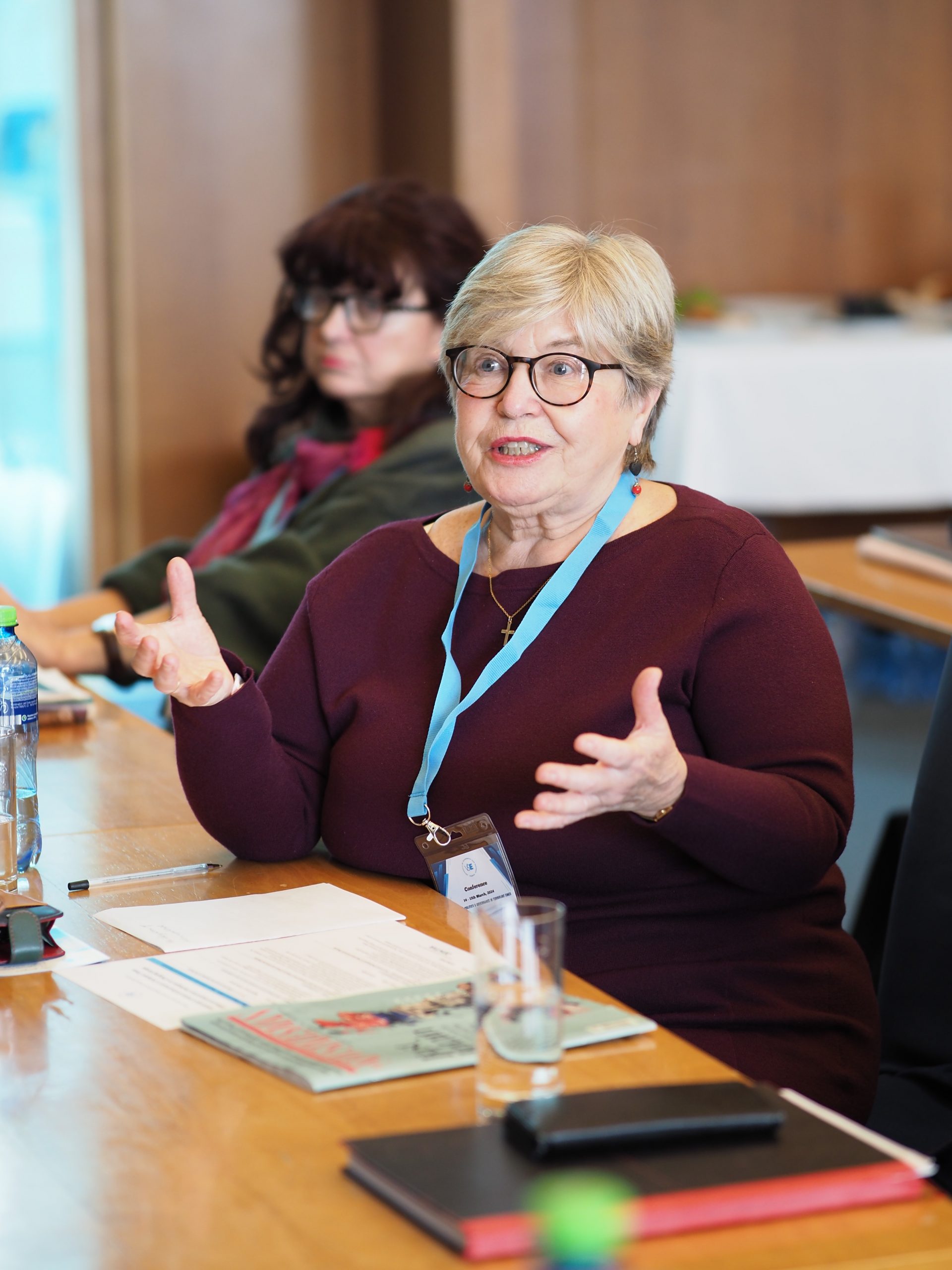
Joyce LIddle
Professorial Fellow, St Chad's College, Durham University
E-mail: joyce.liddle@durham.ac.uk
Professor Joyce Liddle has a distinguished academic background having worked at national and international levels in the fields of urban and regional development, public policy, entrepreneurship, leadership and management. Much of her research and consultancy work has been undertaken in North East England addressing economic and social policy issues in collaboration with local and national politicians, and public, private, voluntary and community organisations.
Joyce was educated at Durham University in politics and sociology, studied for a PhD at the Local Government Centre, Warwick University and went on to hold the position of Course Director in post graduate Management Studies at Durham Business School. Subsequently, Joyce held Professorial, management and research posts in seven UK Universities including Sunderland, Durham, Newcastle, Northumbria, Teesside, Nottingham, Nottingham Trent University and in Aix-Marseille, France.
Her international reputation is reflected in advisory roles for ministers and civil servants in Italy, Finland, the West Indies and China as well as holding Visiting University Chairs in six countries. She also developed education and training programmes for public and civil servants in South Africa, Bahrain, France, Kazakhstan, Brazil and Ethiopia.
Drawing on a successful track record in securing UK Research Council and other research funding she has published over 250 articles, 45 book chapters and written and co-edited some sixteen books as well as fulfilling a number of editorial roles for journals and book series.
Joyce was a founding member and co-leader of an influential Regional Studies Association ‘Trans-border Place Leadership in Europe’ network. She is a Fellow of AcSS for services to the Academy and Society, Fellow of UK JUC/PAC for services to public policy and administration, and a Fellow of Regional Studies Association, for services to UK and international Regional policy and development, She is also a UKRI panel member, Future Leaders’ Fellowship Panel and a member of POGO, Blavatnik Business School, University of Oxford.
During her time at Northumbria (to continue as a Visiting Professor, Newcastle) she acted as Academic Director and Board Member of Insights North East, and led on Inclusive Growth. This regional partnership seeks to bridge the gap between research and place-based leadership policy involving Newcastle, Northumbria Sunderland and Durham Universities, NHS, North East Mayoral Combined Authority (NEMCA), local Councils and other regional agencies. In January 2024 she was an invited member of an Expert Advisory Panel to help to develop NEMCA Investment Planning Framework.
More widely, Joyce’s research nationally and in the North East has included a report for the NE Future Finance Commission (NELEP) on funding for regional development in the NE, a UKRI funded (4 nation state) project on Local Government Procurement under Covid 19, Levelling Up Reports widely discussed in national and international press, Devolution and regional performance in the NE, Place Leadership and Governance issues after Brexit. She was recently invited as a UK discussant at OECD Paris (May 2024), on a panel on Transforming Places: Leading Change. The report is available at OECD, Paris, publications.
Joyce is currently taking forward her work surrounding Devolution in the North East and related public policy and management issues in collaboration with members of the Policy and Practice research group.

Dr Tanya Gray
Senior Research Associate
Dr Tanya Gray, BSc Economics (Cardiff), MSc European Urban and Regional Development (Durham), PhD (Durham)
Tanya has many years of experience of research, consultancy and policy analysis in issues surrounding third, public and private sector interactions. She is currently managing a pilot programme in Redcar and Cleveland, the ‘Grow’ programme, funded by Lloyds Bank Foundation which is focusing on the development of the capability of smaller third sector organisations.
Tanya also currently works as an advisor and consultant at Tees Valley Community Foundation and this work has involved supporting the Wharton Trust in Hartlepool to be part of the Power to Change Empowering Places programme. Tanya, Stephanie Rich, Paul Braidford and Tony Chapman are also currently working on a two-year project for Durham County Council on interactions between public, private and third sector organisations who are supporting less advantaged young people to make successful life transitions.
Tanya previous experience includes employment by One North East as Sport and Economic Development senior executive, and as the Nations and Regions Coordinator for the London 2012 Olympic Games. This role involved partnership brokering, coordinating and organising delivery of the Olympic Torch Relay, the Paralympic Flame Festival, the 2012 Football Competition at St James' Park, business and procurement opportunities, Pre Games Training Camps, volunteering, schools and community initiatives and tourism.

Dr Jonathan Wistow
Associate Professor in Social Policy and Fellow in the Wolfson Research Institute for Health and Wellbeing
E-mail: jonathan.wisto@durham.ac.uk
0191 334 1482
Jonathan joined the Department of Sociology as a Research Fellow in 2007, working on the 'Comparative analysis of how local system factors affect progress tackling health inequalities' research project, having previously combined working as a local government officer with postgraduate research. Since then his research has developed in three fields: health inequalities; climate change adaptation; and post-industrialism and class. In each of these areas he has a strong interest in the application of complexity theory to policy and governance systems and how the political economy functions relative to these. For example, his interest in health inequalities centres on the implications of both methodological and ideological framings for how this issue is understood and addressed: Health inequalities in England: a complex case of sticking plasters and category errors.
He recently completed a book called Social Policy, Political Economy and the Social Contract that ties together a range of diverse but related research interests that he has developed throughout my academic career, through employing complexity and social contract theory to understand the trajectory of the political economy and its interrelationship with policy. In 2022 he also completed a co-authored book on the UK Government's 'levelling-up agenda': Levelling up in the UK economy (with Luke Telford). He is also currently working on research into health inequalities and the impact of air pollution on brain health.
Jonathan previously worked as a researcher on the Built Infrastructure for Older People's Care in Conditions of Climate Change (BIOPICCC) project. This project focused on developing research strategies to help ensure that the infrastructures and systems supporting the health and social care for older people (aged 65 and over) will be sufficiently resilient to withstand harmful impacts of climate change in the future, up to 2050. A key output was the BIOPICCC Toolkit comprising online resources to assist local authorities, partner organisations, and neighbourhood and community groups to undergo the process of cross sectoral local level resilience planning.
Jonathan worked with Professors Tony Chapman, John Mawson and Fred Robinson in an ESRC funded project in Policy&Practice: How to work effectively with the Third Sector from 2016-2018 which involved collaboration with seven local authorities and five health authorities in North East England.

Louise Telford, MSc Dementia studies (Stirling), BA Geography (Durham)
Senior Research Associate
E-mail: louise@louisetelford.com
Louise has worked in the not-for-profit sector for over 18 years, which has given her a wealth of experience of working with different community groups, CICs and charities. She has worked for two national grant makers (Lloyds Bank Foundation and Northern Rock Foundation) and Louise currently works part-time for Rosa Fund, which funds work that amplifies the voices of the UK’s most disadvantaged women and girls. She also works on a consultancy basis with a wide range of not-for-profit organisations and local authorities.
Louise is currently working with Lancaster City Council (linked through Policy&Practice at Durham University) to support the Council to deepen its relationships with the voluntary and community sector. She is also working in North Tyneside with the local authority, CCG and VODA to devise and introduce a grants programme for the voluntary and community sector, which will address health inequalities in North Tyneside. Louise also works as a consultant for Tees Valley Community Foundation, providing advice and practical support to not-for-profit groups in Teesside.
Previous experience Louise has gained includes leading the development of a network of small charities and community groups in Redcar through Lloyds Bank Foundation’s Grow programme, this project was evaluated by Tony Chapman. She has also worked with Tony through the Third Sector Trends research programme. Louise has managed and worked on a range of research, evaluation, and consultation projects. One recent project involved working with Dyke House Big Local Partnership in Hartlepool. Louise worked with community members to undertake a comprehensive community consultation exercise, which was used to develop Dyke House’s most recent business plan. When she’s not at work, Louise is a trustee of a small charity that works in her local community.

Dr Stephanie Rich
Senior Research Associate
E-mail: s.f.rich@durham.ac.uk
Stephanie is a Senior Research Associate of Policy and Practice at St Chad’s College. She was awarded her PhD in 2018 for a qualitative study of young people on employability programmes in North East England. She also has BSc in Sociology and Social Policy (Durham) and Masters in Taught Masters, specialising in Social Research and Social Policy (Durham). Her Masters dissertation focused on the impact of local and national social policy interventions on young people who are not in education, employment or training (NEETs).
Stephanie was awarded an ESRC Scholarship at Durham University where she carried out research on welfare policy and its impact young people. Her doctoral thesis is a longitudinal multi-case study, which looks at the lived experiences of young unemployed people, in the North East of England. Research methods included focus groups, individual and group semi-structured and unstructured interviews, and phone, email, and Facebook correspondence.
These methods have been used to undertake an in-depth inquiry into the views, attitudes, actions and interactions of the young people from the perspectives, over a 6-9 month period. This research maps the experiences and progression of young people who are unemployed and living in various locations in the North East, generally regarded as ‘weak economies’. The young people’s experiences of the reformed JobCentre Plus are documented, including the increased conditionality and imposed sanctions.
Working alongside, Professor Tony Chapman, Stephanie has worked on the evaluation of two Cabinet Office research projects on youth social action and the NYA's Big Lottery funded 'My Money Now' evaluation which was published in 2018. She has also worked on a two year study on young people's life transitions for Durham County Council and the Institute for Local Governance and the Big Lottery ‘Our Bright Future’ evaluation. She has also been involved with the evaluation of the O2/Telefonica Think Big programme.
Stephanie is a qualified Teacher in post compulsory education. She has taught Level two access to learning to young people and adults wanting to re-enter education but who lack GCSE equivalent qualifications. She has also taught social policy in the School of Social Sciences for several years at undergraduate and masters level.
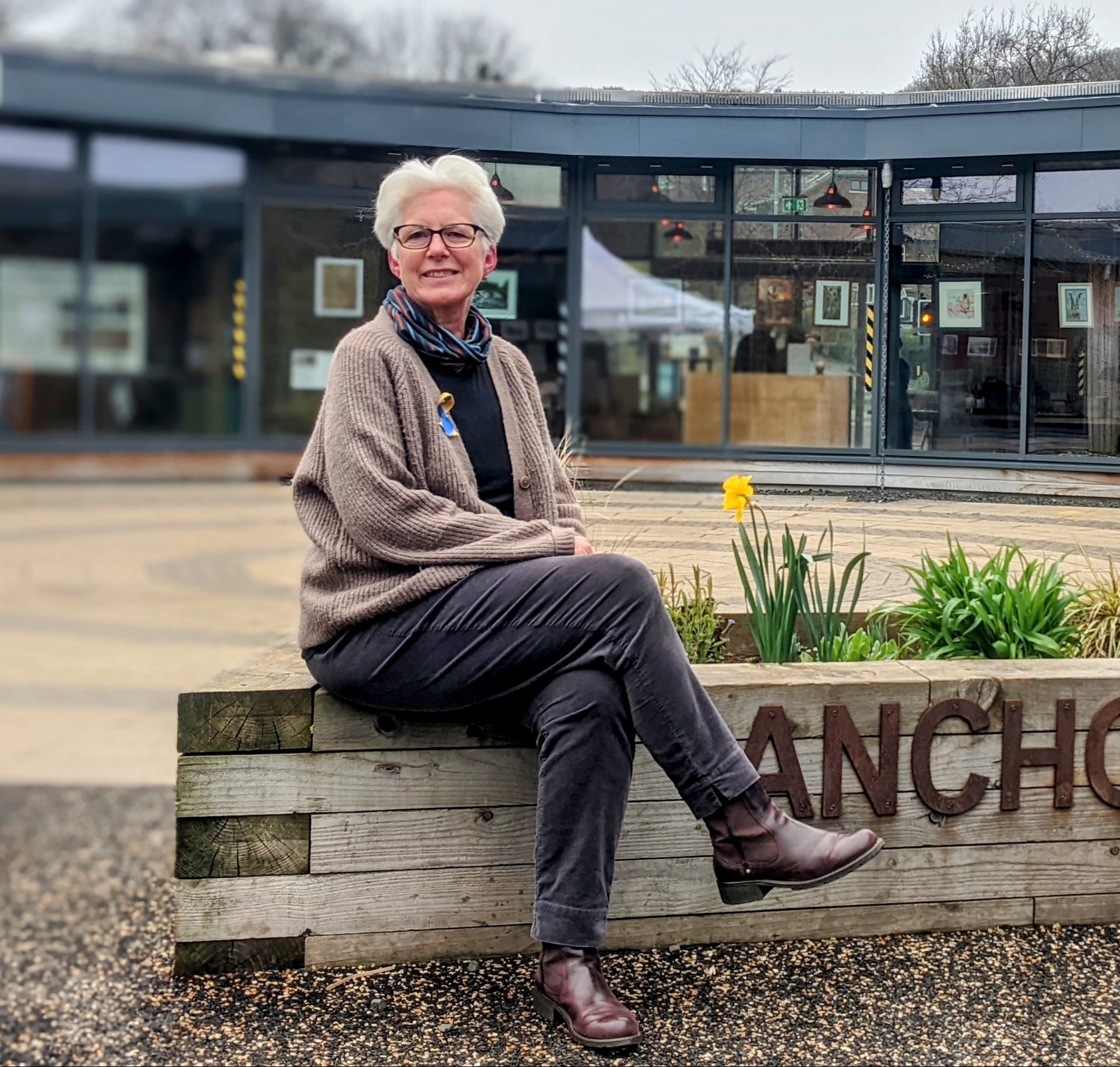
Kate Culverhouse
Senior Policy&Practice Associate
E-mail: Kate.culverhouse08@gmail.com
07930 330809
Kate has worked in the voluntary sector for 30 years, since joining the West Durham Groundwork Trust in 1992 as their first community and countryside officer. She went onto become their Executive Director and led the merger of five of the six trusts across the region to form Groundwork North East and Cumbria in 2009. Kate has continued to be at the helm and grow the trust, which now employs around 250 people, until she leaves at the end of 2022.
As Chief Executive of Groundwork North East & Cumbria Kate has been leading and delivering regeneration programmes and activity that has created greener and improved neighbourhoods and open space; enabled people to improve their prospects through employability support, promoting healthier lifestyles and encouraging social action; and creating greener living and working through advice and practical measures. She is responsible for the creation of the Greenhouse, the first eco business centre in Co Durham in 2006 and more recently the Land of Oak and Iron Heritage Centre which opened 2018 in Winlaton Mill, a vibrant centre and café celebrating local heritage, arts and activity.
Throughout the 30 years of living and breathing the world of north east communities and the VCSE, Kate has supported, and been actively involved, in numerous smaller charities across the region, sitting on the board of trustees for VONNE and local organisations such as Catalyst in Stockton and Durham Rural Community Council and 2D in Durham. She also has had experience of closing down smaller charities, whether through poor management or lack of funding.
She also represented local Groundwork Trusts at a national level and for many years sat on the Federation Board of Groundwork UK. Kate is a trustee of the recently formed Urban Green in Newcastle, taking on the ownership and management of the parks and allotments across Newcastle.
Locally, in her home town of Darlington, Kate sings in the St Theresa Hospice choir; sits on the South Park Foundation and assists the annual community carnival with her well known cake stall to support local fundraising efforts.

Ian Zass-Ogilvie
Research Fellow
E-mail: ian.zass-ogilvie@durham.ac.uk
Ian is an Anglican priest and chartered surveyor. He came to the North East in 1966 as curate of Washington and pit chaplain, later working ecumenically as regional coal industry chaplain. Subsequently he was engaged in establishing (and on two occasions working for) housing associations in the NE and later supporting the single homeless in central London.
Moving to Scotland in 1984, he set up a number of community enterprises and became a founder member of Scottish Churches Housing Action and board member of the Scottish Refugee Council. Throughout his dual career he has worked to initiate social and housing enterprise, latterly as chief officer of the Churches’ Regional Commission in the North East with faith communities.
For the last 10 years at St Chad’s he has assisted Professor Fred Robinson with a considerable number and variety of social research projects – currently working with local community groups and Durham County Council in facilitating community asset transfer. He is also a pastoral tutor at St Chad’s.
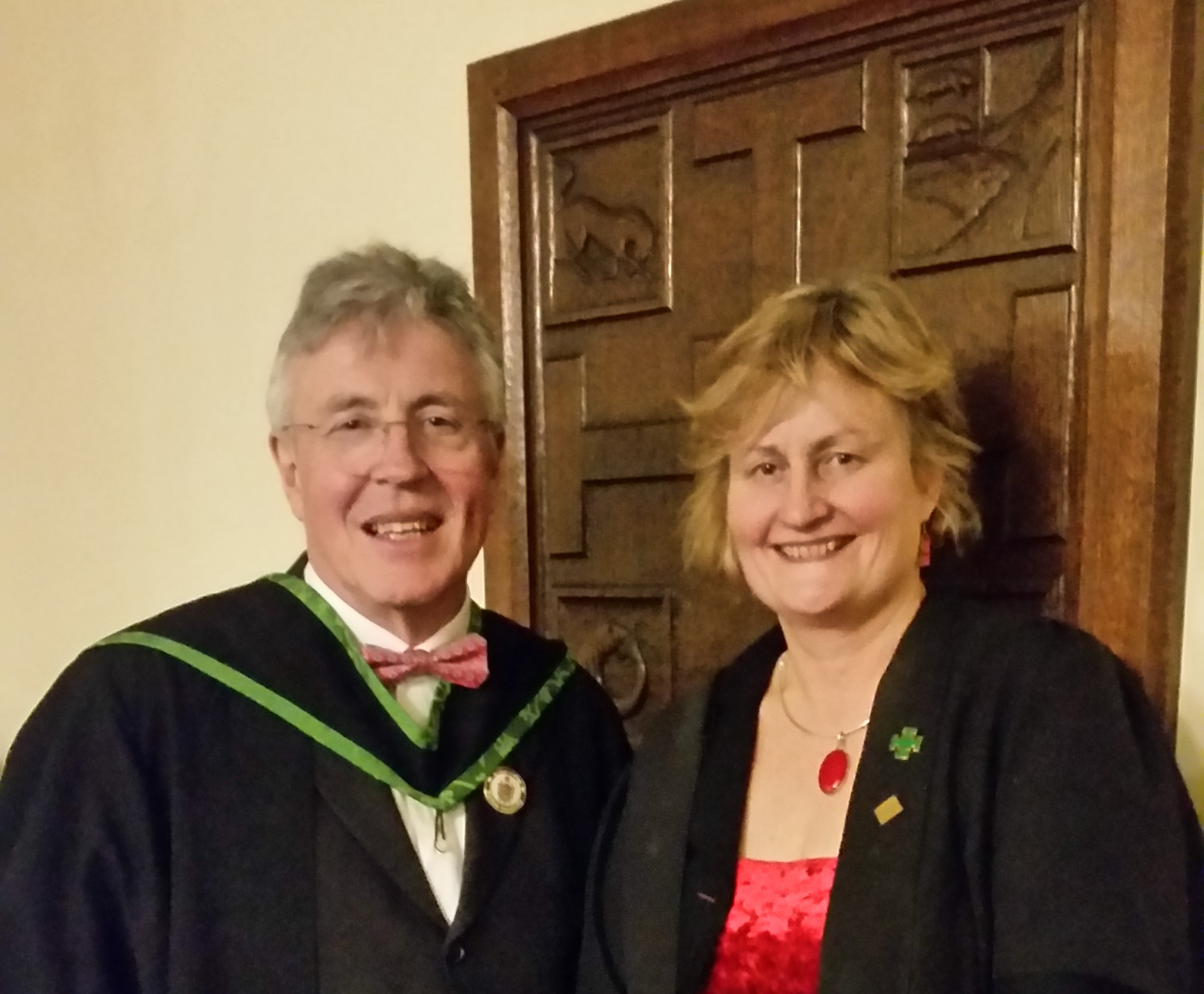
Jonathan Blackie CBE
Professorial Fellow
E-mail: jonathanblackie@hotmail.co.uk
07802 917 014
Jonathan Blackie was Director of the Government Office North East for almost a decade from 2002. He was a founder Director of the Regional Development Agency, One NorthEast, and Regional Director of English Partnerships. He was Director of Newcastle City Challenge which covered the west end of the city following disturbances in 1990.
He is an independent trustee of Tyne and Wear Archives and Museums, chair of the Alnwick Garden Trust, and worked for the North East Culture Partnership to produce the 'Case for Culture' in 2015. He chairs the River Tyne steering group, with Port of Tyne, local authorities and agencies connected to the river.
He is also Visiting Professor at Northumbria University. He co-produced the 'Borderlands' report with Professor Keith Shaw in 2013, which set the scene for the 'Borderlands Initiative', a Government sponsored devolution framework to promote the border area between England and Scotland. He also peer reviewed an economic innovation review of Southern Jutland for the Organisation of Economic Cooperation and Development in 2012.

Sarah Green
Marchant Scholarship Doctoral Researcher
E-mail: sarah.j.green@durham.ac.uk
Sarah Green is the current recipient of the Marchant PHD Scholarship at the Institute of Local Governance in Durham University Business School and St Chads College. Sarah’s qualitative research project considers the social impact of micro businesses in rural communities and is focused on four market towns in Northumberland, North East England.
Early research findings have been used by the Federation of Small Business (FSB) as part of their 2019 report and Westminster event “Small Business: Big Heart”. Sarah now chairs the FSB’s Community work. In 2018, Sarah utilised this research as part of a panel created by the Centre for Rural Economy to give evidence on the Industrial Strategy and its application in rural areas to policy makers including BEIS and DEFRA.
When not conducting research, Sarah is a non-executive advisor at Ryder Architecture and a director at Tyne and Wear Archive and Museums. She is an elected independent member of the Council of the National Trust and sits on the Court of Newcastle University. Sarah was previously Director of Regions and Nations at the CBI and started her career as a solicitor at Clifford Chance, London, Hong Kong and Shanghai.
Sarah lives with Mark and her two children in Craster where they have spent the last two years converting a chapel into a home. She is a keen (but slow) member of Craster Coastal Rowing Club.
